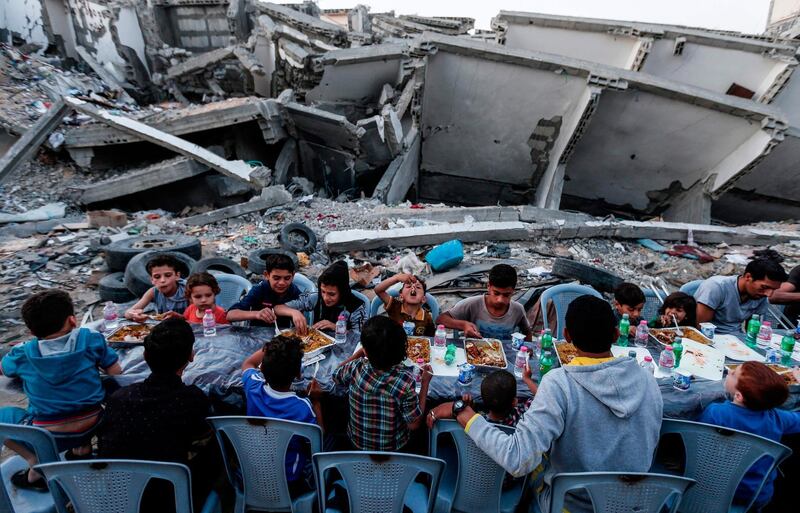In the past few weeks, Trump administration officials, western politicians and media commentators have been on the verbal offensive against Hamas, holding it entirely responsible for the suffering of Gazan Palestinians. While the militant group has been an important contributing factor to the grim realities this population is forced to endure, citing it as the sole cause absolves Israel of its 12-year blockade of the Gaza Strip. It also completely ignores the state's role in Hamas's rise and its continued dominance.
After recent escalations between Israel and Hamas, Aluf Benn, editor-in-chief of the liberal Haaretz newspaper, wrote that if he ever interviewed Yahya Al Sinwar, the head of Hamas in Gaza, he would ask: "Why not try something different and recognise Israel?" He argued that Hamas launching rockets into Israel would never improve Gaza's economic and humanitarian situation, but that recognition of the Israeli state could. Certainly, an end to the violence would be to everyone's benefit, but recognition of Israel would do neither Gaza nor Hamas any good at all.
To grasp this, one has to look back to 1993. Back then, the Palestine Liberation Organisation renounced violence and recognised Israel, but the Israeli state met its moves towards peace with further entrenchment of its occupation and a ramping up of its aggression against ordinary Palestinians. Twenty-six years on from the Oslo Accords, matters have only worsened – regardless of the good intentions of the vast majority of the Palestinian people. For instance, despite having pushed for Palestinians to end violent resistance and recognise Israel since the 1970s, Mahmoud Abbas, the current leader of the PLO, is now routinely painted as an arch-terrorist.
Hamas’s present position of power cannot be understood without a full appreciation of Israel’s role in it. In the 1990s, Palestinians cheered in support of the Oslo Accords. Hamas did not enjoy even a fifth of Fatah’s popularity. However, the group was gradually emboldened as Israel began to renege on the terms of the agreement. At that point, Yasser Arafat, then PLO leader, refused to hold new Palestinian elections in the belief that frustration over a peace process that he had promised would bring freedom and justice, but had only brought marginalisation and misery, would result in angry votes being cast for Hamas.
Later, in 2006, exhausted and disheartened Palestinians – many of whom had placed olive branches on Israeli tanks and military Jeeps after the signing of the Oslo Accords – did end up casting their ballots for Hamas. However, it is worth remembering that they did not want Hamas in the past and, looking at the polls, it appears that they do not want them now.
As a Palestinian who lives in Gaza, I wish Hamas would disappear tomorrow. Its rule, filled with despair and division, has been nothing short of a disaster for Palestinians. This could not have happened without the complicity and active support of Israel.
Hoping that it would weaken the increasingly moderate and credible Fatah and PLO, the Israeli state actively encouraged Hamas's emergence in the late 1980s. It then invigorated the movement when it betrayed the Palestinians' hopes of peace and freedom in the wake of the Oslo Accords. Now, it is happy to help the group to maintain its control over Gaza. Prime Minister Benjamin Netanyahu has gladly admitted that he has allowed Qatari money to reach Hamas, in order to relieve the pressure that the blockade has placed on the movement. In addition to this, he has said that he will not hand Gaza over to Mr Abbas.
The truth is that Israel has always opposed an equitable peace with the Palestinian people. While its leaders may demonise Hamas to their allies, the truth is that Israel is solidly in favour of the status quo. It wants Hamas to remain in control of Gaza, because it ensures that Gaza will remain sundered from the West Bank, which, in turn, destroys any prospect of a Palestinian state.
The western politicians and pundits who are now so intent on laying the blame for Gaza’s suffering solely at Hamas’s door refuse to acknowledge Israel’s active participation in the creation and perpetuation of this toxic situation. Only a truly honest conversation about this will help us move forward.
Ali Adam is a Gaza-based journalist and researcher whose work focuses on issues linked to the Israeli-Palestinian conflict.





